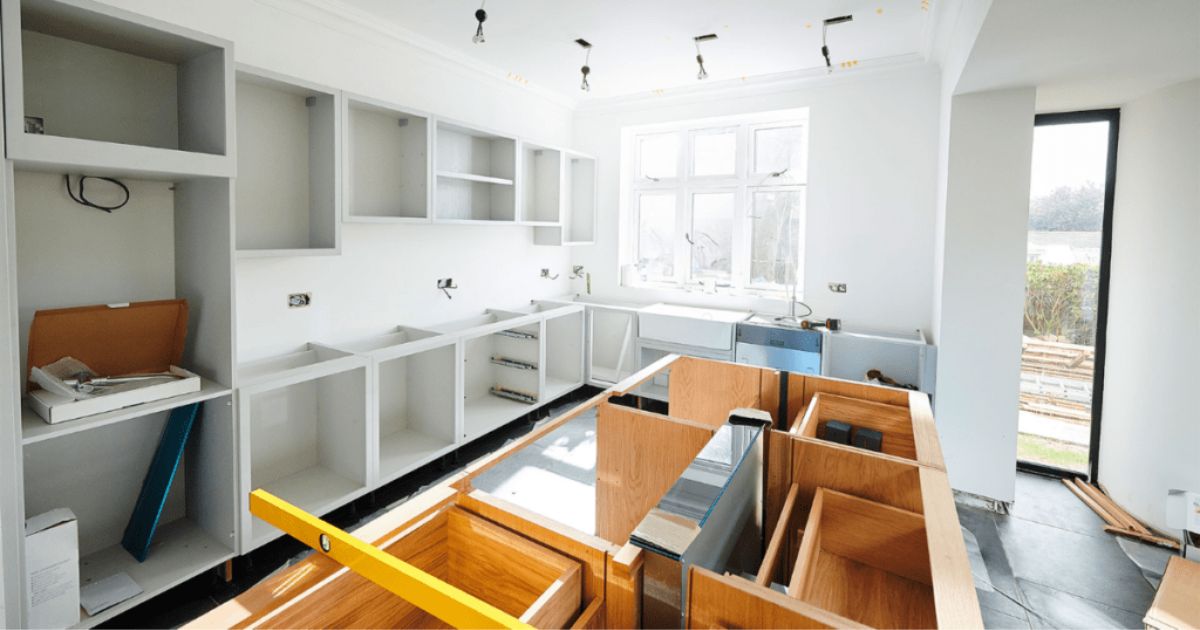Financing a house addition can be a great way to increase the value of your home and create more space for your family. It can be expensive, but a few options are available to help you finance a house addition. Short-term financing could be used to cover some of the costs of the house addition. Long-term financing could also be used to cover the additional costs. If you have the money available, you can use cash to finance your house addition.
This is often the easiest and most cost-effective option. However, if you don’t have enough cash saved up, there are other financing options available. You may be able to use a line of credit, a home equity loan, or a personal loan to pay for the house addition. Each option comes with its own pros and cons, so it’s important to do your research and find the best option for your needs.
Determine the Total Cost of the House Addition

The total cost of a house addition is the sum of all the expenses associated with the project. This includes the cost of materials, labor, permits, and other related costs. Determine the scope of the project. Research the cost of materials and labor.
Factor in any permit fees or other related costs. Once all of these costs are
determined, the total cost of the project can be calculated by adding them all together. With careful planning and budgeting, the total cost of the house addition can be kept within the desired budget.
Research Different Loan Options for Financing the Project

When looking for financing options for a project, it is important to research different loan options. This involves comparing different lenders, interest rates, and terms of the loan. It is important to look at the overall cost of the loan, including fees and other costs. It is also important to consider the repayment options and the length of the loan, as this will affect the total cost.
Additionally, it is important to consider the impact of the loan on credit scores and whether the loan can be refinanced in the future. Researching loan options can be aided by using online resources like comparison websites and lender websites. It can be helpful to compare different loan options. This can help to quickly compare different loans and lenders. It is also important to read all the terms and conditions of the loan before signing any agreement.
Calculate the Amount of Money Needed for the Down Payment.
The down payment is an integral part of a loan agreement and is the money you need to pay upfront to secure the loan. Calculating the amount required for the down payment is critical to ensuring you can afford the loan and the associated fees. The amount of money needed for the down payment depends on the type of loan you are taking out, the lender, and the size of the loan.
Generally, the larger the loan, the larger the down payment. It is important to calculate the amount of money needed for the down payment before signing any loan agreement. This will help ensure you can afford the loan and will not be stuck with unmanageable debt.
Speak With a Loan Officer to Discuss the Loan Requirements and Process
If you’re considering taking out a loan, it’s essential to speak with a loan officer. A loan officer is a professional who specializes in helping people obtain loans. They can explain the loan requirements and process in detail and help you determine which loan product is best for you. When speaking to a loan officer, make sure to ask questions about the loan process and the requirements.
They can provide you with information about interest rates, loan terms, and any fees associated with the loan. They can also explain the documents you’ll need to provide in order to apply for the loan. The loan officer can also help you understand what happens once your loan is approved and how you can make payments. By speaking with a loan officer, you can ensure that you understand the loan process and requirements before you apply.
Begin the House Addition Project.
House addition projects involve making changes to the existing structure of a home. This may include adding extra rooms or making improvements to existing rooms. The first step in beginning a house addition project is to decide what changes need to be made. This could include deciding what type of addition will be made, such as a new bedroom, bathroom, or kitchen.
Once the changes have been determined, it is important to plan the project carefully. This includes drawing up a design, obtaining the necessary building permits, and figuring out a budget for the project. It is also important to hire qualified contractors to do the work, as this will ensure the project is done properly.
FAQ’s
How do I finance a house addition?
Depending on your budget, you can finance a house addition by taking out a loan from a bank or other lending institution, taking advantage of home equity, or using a combination of the two.
How much does a house addition cost?
The cost of a house addition can vary widely depending on the size and scope of the project. Be sure to get quotes from several contractors to find the best deal.
What is the difference between a loan and home equity?
A loan is a sum of money borrowed from a bank or other institution, while home equity is the amount of money you have invested in your home.
Should I hire a contractor to build my house addition?
Yes, it is recommended to hire a contractor to build a house addition. They will have the expertise and experience needed to ensure the project is completed correctly and efficiently.
Conclusion
Financing a house addition can be a costly undertaking, but it can increase the value of your home and make it more livable. It is important to research the different financing options available before making a decision. Taking the time to understand the options can help you decide which one is best for you. A financial advisor can help you choose the best financing option for your needs and budget.
They can also provide guidance on how to make the most of your finances. Financing a house addition is an important decision and should not be taken lightly. Research the different financing options and speak with a financial advisor to make a well-informed decision. While the cost of a house addition can be high, it can also increase the value of your home and improve your living experience.

Brook over 3 years of professional gaming, esports coaching, and gaming hardware reviews to provide insightful expertise across PC, console, and mobile gaming.










